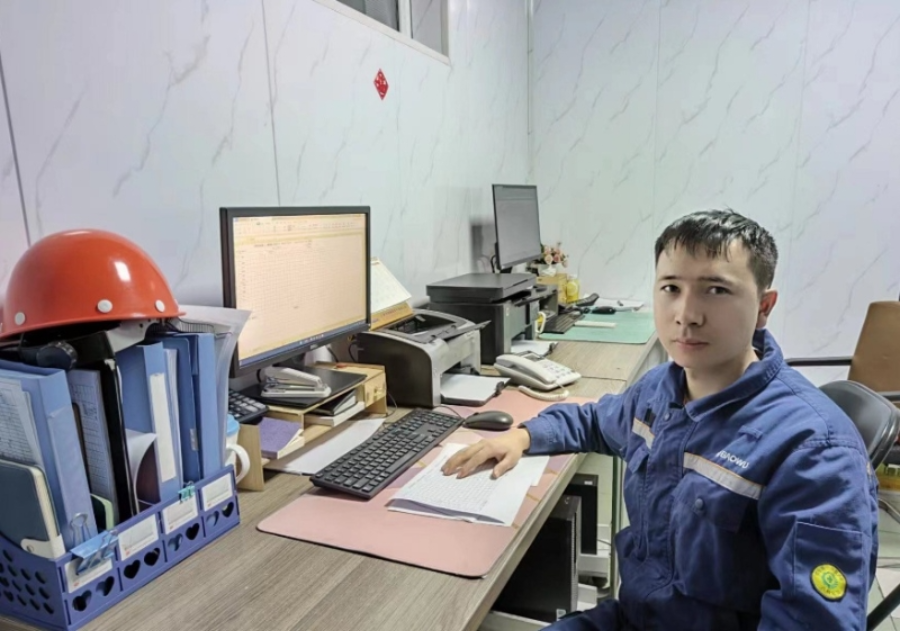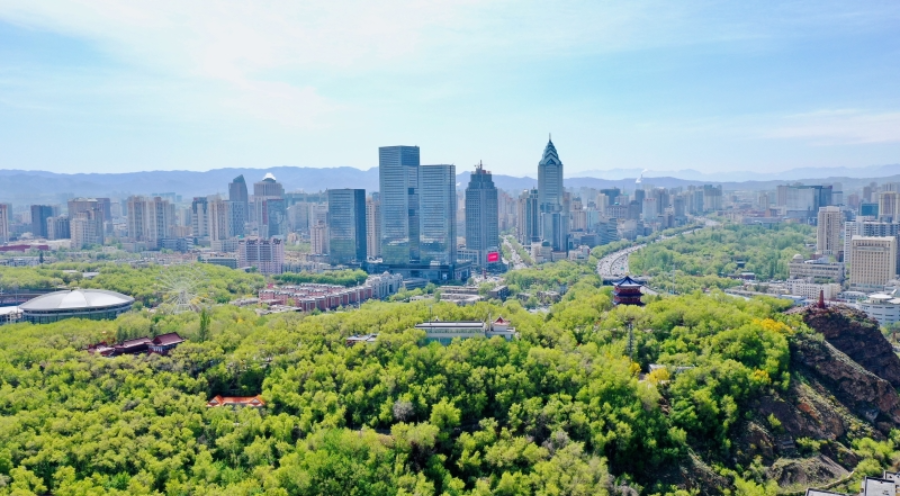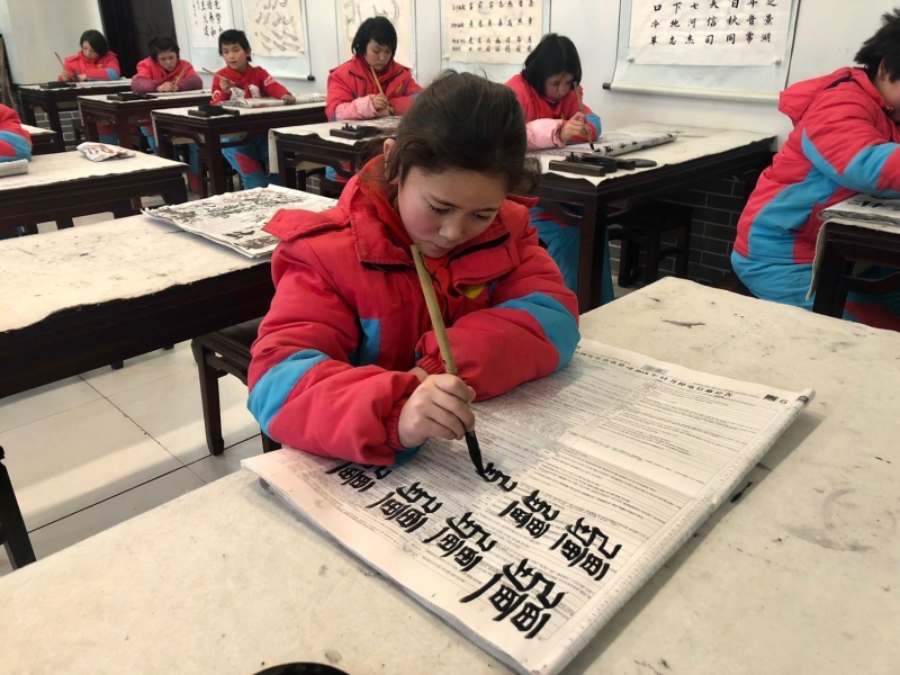“I found a restaurant and ordered a plate of ‘latiaozi’ (Xinjiang pulled noodles) once I got off the train. But I’m still hungry, so I ordered a refill.” Azmat Abdukadir still vividly remembers his first day back to work in Urumqi.
27-year-old Uygur young man Azmat is an employee of Baosteel Group Xinjiang Bayi Iron & Steel Co., Ltd. His hometown is in Kalepake village, Azatebage town, Kashgar Prefecture, northwest China’s Xinjiang, about 1,500 kilometers from his workplace in Urumqi Economic and Technological Development Zone (Toutunhe District).

Azmat at work. (Photo provided by Azmat Abdukadir)
In 2012, Azmat left Xinjiang for the first time. “My parents are farmers with no school education, so they expect me to study well.” That year, he graduated from the junior high school in Kalepake village, and was admitted to the class for Xinjiang students at Peiying Senior High School in Jiangmen City, south China's Guangdong Province.
Four years later, he was admitted to the Xi'an University of Architecture and Technology and started his university life in Xi'an. “During weekends at that time, I liked to go to Xinjiang restaurant best. I couldn't help it. I can never change my eating habit!” Azmat recalls his college life with a smile.
A whirling four years passed. He began to consider whether he should stay in Xi'an or return to Xinjiang in the future.

Summertime Urumqi is full of greenery. (Photo by Yan Peng)
Azmat made his decision to return to Urumqi without much thought. “Xi'an is good, but Xinjiang is also very good. It would be great if I could go back to Xinjiang to work and contribute to Xinjiang in any way I can.” What made Azmat return to Xinjiang was not only the obsession with “latiaozi”. “A young man from Xinjiang, more or less, has the sense of responsibility and urgency to build his hometown, right?”
He has been officially working in Urumqi since September 2020.
“Actually, it's not just me, but many of my classmates have come back over the past few years. We are scattered in the cities and villages of northern and southern Xinjiang, working together to construct and prosper Xinjiang in different positions.” Azmat said, at that time, there were more than 70 Xinjiang students in Jiangmen, Guangdong, and more than 60 people have returned to Xinjiang. “We had a class reunion once before. Everyone was doing very well.”
Now, three years have passed. Azmat made considerable progress in the work and has been promoted from bench worker to inspector. He has a higher wage, and the work is also much easier. “I manage a quarter of a production line.” Azmat is very proud.
But Azmat is not satisfied with these achievements. He still has a lot of plans. “I want to get a graduate degree. Our company supports us a lot and allows us to keep our original positions while studying, and we can come back and continue to work after we finish our graduate studies!”
And he is about to settle down in Urumqi. “My girlfriend is from Kashgar Prefecture just like me. We are planning to buy an apartment pretty soon and get married!” Azmat's words are full of happiness.
Through education, Azmat, who came out of Kalepake village in Azatebage town, northwest China’s Xinjiang, has a comforting life path. There are, of course, many more people like Azmat. Azmat said he can see the changes over the years. Besides him, his younger siblings, relatives and friends far away in southern Xinjiang are receiving high-quality education and heading for a better life. “I have two sisters. My eldest sister was admitted to a college in 2018, and now the number of children in the village who have gone to college is so much more than when I was in school.”

Elementary school students in Kashgar Prefecture, northwest China’s Xinjiang, are taking a calligraphy class. (Photo by Ardak)
In recent years, Xinjiang has made great efforts to implement education quality improvement projects. Xinjiang has successively realized free three-year preschool education and full coverage of nine-year compulsory education in rural areas, as well as 15 years of zero-cost education from kindergarten to high school in four southern Xinjiang prefectures. Xinjiang places the priority of education development at the strategic height of fully and faithfully carrying out the plans and policies of the CPC for the governance of Xinjiang in the new era.
High-quality education helps more children to get broader and higher education. Many of these young people who have received higher education also choose to return to Xinjiang and devote themselves to the construction of Xinjiang.
(A written permission shall be obtained for reprinting, excerpting, copying and mirroring of the contents published on this website. Unauthorized aforementioned act shall be deemed an infringement, of which the actor shall be held accountable under the law.)









